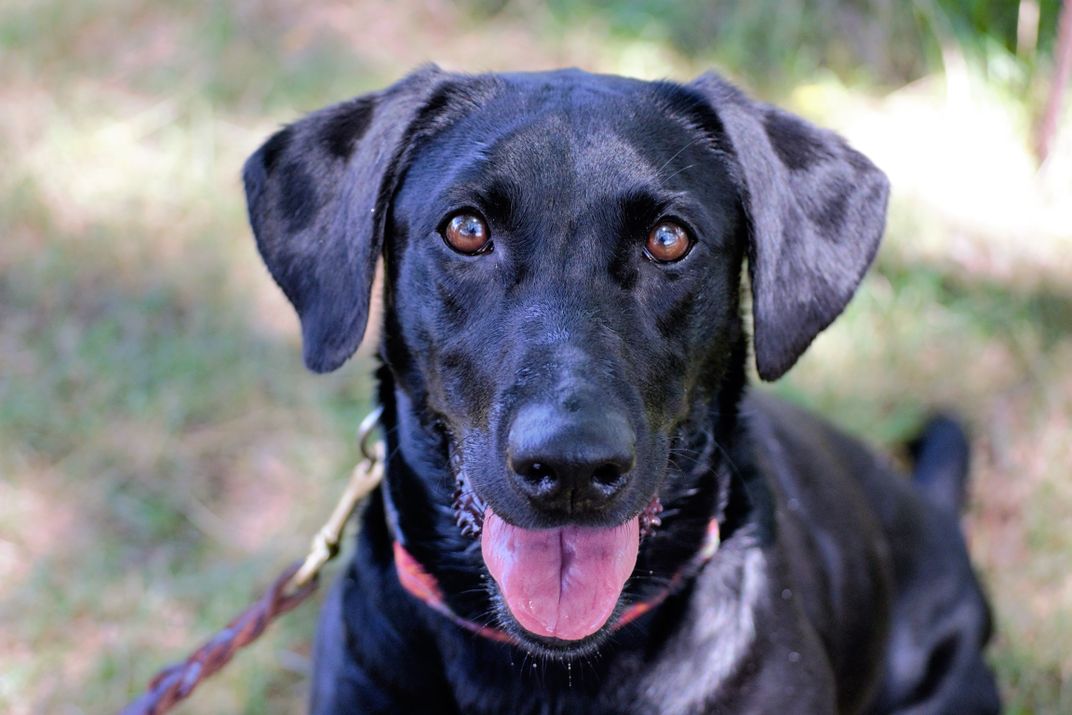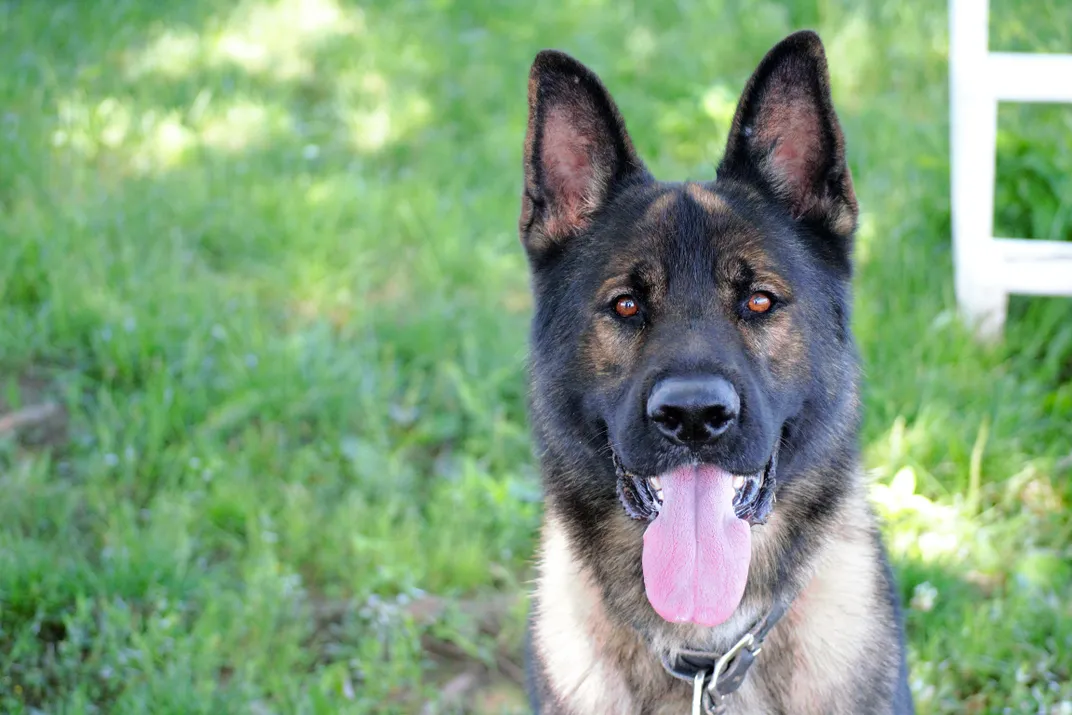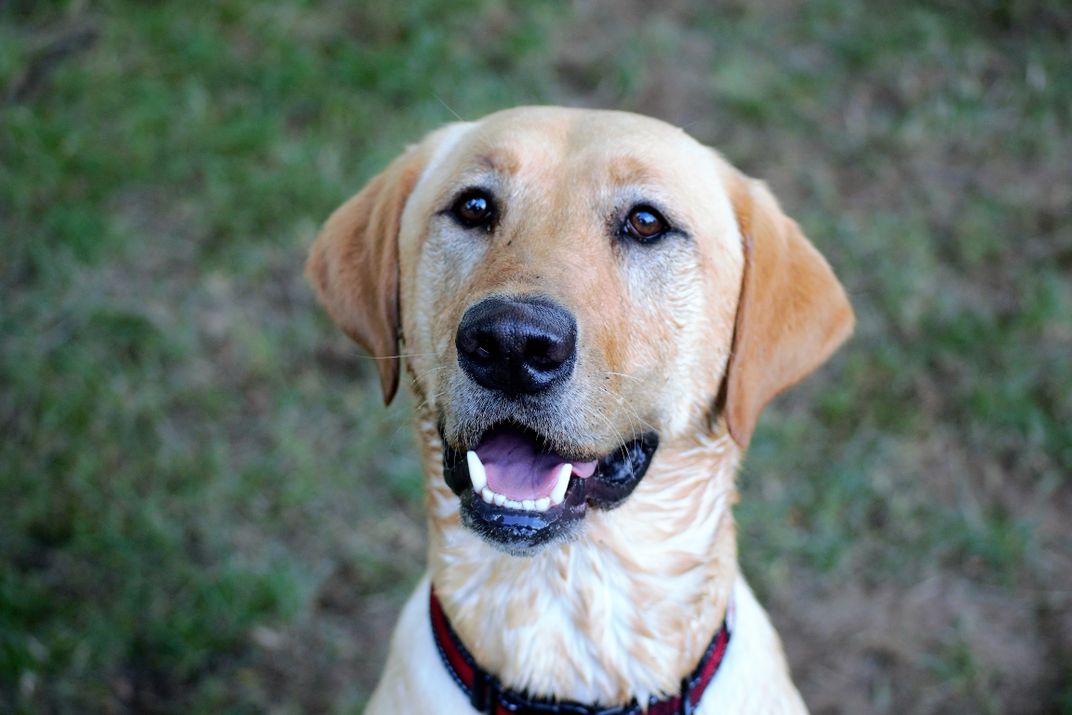Dogs May Soon Be on the Front Lines in the Fight Against Artifact Smuggling
A project with the University of Pennsylvania is seeking a new tool in an important battle
At the University of Pennsylvania, Roxie, Moxie, Pacy, Scout and Grizzly are ready for their first archaeology class. The pupils—four Labradors and a German shepherd—each take a turn with a trainer in a quiet room to focus on the task at hand: sniffing cotton that had been sealed in a bag with bits of ancient Syrian pottery, and then getting a treat.
At the Penn Vet Working Dog Center, researchers have taught dogs to detect bombs, drugs, arson, people, even cancer. But this is the first time dogs are learning to recognize the smell of artifacts. The goal is to reduce the smuggling of archaeological treasures from Syria and Iraq, where looting has skyrocketed as a source of funding for terrorist groups.
The K-9 Artifact Finders project is a collaboration with Penn’s Museum of Archaeology and Anthropology and Red Arch Cultural Heritage Law and Policy Research, a nonprofit trying to stem the trafficking. “How do you keep these smuggled cultural artifacts from crossing borders without searching every shipment, every suitcase?” asks Ricardo St. Hilaire, the executive director of Red Arch. The K-9 initiative was his idea, a way to see if detection dogs can curb trafficking at airports, seaports and other places stolen antiquities slip through security.
After the dogs learn to identify the scent of the artifacts, they will be tested for sensitivity, says WDC director Cynthia Otto. Can canines smell the difference between pottery pieces that have sat in a museum for years and those that are recently excavated—and thus more likely to have been looted from an archaeological site? Do antiquities from Syria smell the same as ones from Iraq?
A couple of weeks after their first sniff, all the canines in this inaugural class recognize the odor of the pottery. Moxie has caught on especially quickly. Circling a steel disk with compartments hiding various items—rubber gloves, paper, plain cotton—she stops suddenly at the one containing the pottery-scented cotton and noses it enthusiastically. “Woo-hoo!” the trainer trills. Tail wagging, Moxie trots over to get a small bite of hot dog, then continues her training as a soldier in the war on terror.


